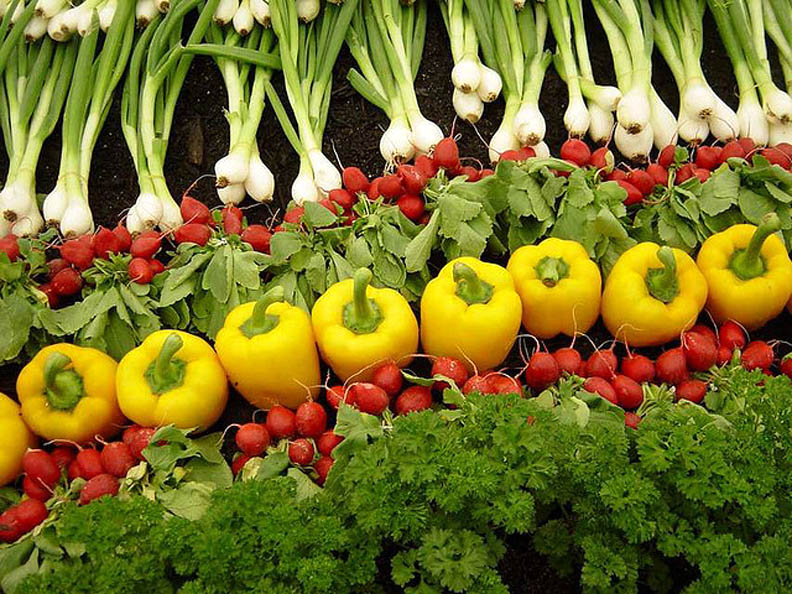
Consumers should not rely on the Environmental Working Group's "Dirty Dozen" list when deciding which fruits and vegetables to purchase.In fact, recent consumer research has shown that EWG's Dirty Dozen list is actually causing some people to consider dismissing this "eat more" advice from health officials.
June 26, 2012

Scientists, nutritionists, health and farming experts all agree that consumers should not rely on the Environmental Working Group's "Dirty Dozen" list when deciding which fruits and vegetables to purchase.
Instead, consumers should simply follow the advice of health experts everywhere and eat more conventionally and organically grown fruits and vegetables since both farming methods produce very safe foods.
In fact, recent consumer research has shown that EWG's Dirty Dozen list is actually causing some people to consider dismissing this "eat more" advice from health officials.
Read on to see a dozen reasons NOT to use EWG's "Dirty Dozen" list.
1. After hearing EWG statements about the "Dirty Dozen" list, almost 10 percent of low-income consumers stated that they would reduce their consumption of fruits and vegetables.
Scared Fat: Are Consumers Being Scared Away from Healthy Foods? Alliance for Food and Farming Report, June 2012.
2. EWG contradicts themselves. "To be on the safer side, I'd pick the organic blue berries or bell peppers that had never been doused in toxic pesticides. EWG does believe that both the organic and conventional versions of all produce on the market are safe to eat." Alex Formuzis, Vice President, EWG. Huffington Post, May 2012.
3. "You don't have to eat organic to eat healthily. Eating real food, whether it's organic or not, is going to do a lot for your health. Any apple is good for you." Michael Pollan, Best Selling Author, Professor of Science and Environmental Journalism, University of California, Berkeley and Lecturer on Food, Agriculture, Health and the Environment. Boston Globe, January 2012.
4. "For all of us involved in promoting better consumer health, increasing consumption of fruits and vegetables is among our main objectives. The benefits of consuming plenty of fruits and vegetables is absolutely indisputable. Consumers should eat both organic and conventionally grown produce without worrying about minute levels of pesticide residues." Dr. Carl Keen, Professor of Nutrition and Internal Medicine at University of California, Davis.
5. "A focus on nutrition in general would be much more beneficial to human health than this misguided focus on extraordinarily small contamination levels of pesticides. Every chemical has toxicity, but it's all in the dose. The amount of pesticides present as residues on food is miniscule." Discovery News. Samuel Cohen, a pathologist with expertise in toxicology and carcinogenesis, University of Nebraska Medical Center, August 2011.
6. "From a scientific perspective, however, the AFF (Alliance for Food and Farming) seems to be on solid ground. The EWG report cites not a single study to support a direct link between pesticide residue and health effects." James McWilliams. New York Times, October 2010.
Reasons 7 - 12
7. "A person would need to eat "so much" (of the produce on the Dirty Dozen) you can't even imagine." Dr. Marion Nestle, Author and Professor of Nutrition, Food Studies and Public Health, New York University. Chicago Tribune, June 2011.
8. "The methodology used to create the "Dirty Dozen" list does not appear to follow any established scientific procedures. The results from this study strongly suggest that consumer exposures to the ten most common pesticides found on the "Dirty Dozen" commodities are several orders of magnitude below levels required to cause any biological effect." Dr. Carl Winter, Professor of Toxicology, University of California, Davis. Journal of Toxicology Article: Dietary Exposure to Pesticide Residues from Commodities Alleged to Contain the Highest Contamination Levels, 2011.
9. "The amount of pesticide residues that an average person ingests throughout an entire year is even less than the amount of those 'harmful' substances in one cup of coffee. Unfounded fears about the dangers of pesticide residues on fruit and vegetables may stop many consumers from buying these fresh, healthful foods. In response, some stores sell "organic" foods grown without synthetic pesticides, but these foods are much more expensive and out of reach of low-income populations. As a result people - especially those that are poor - may consume fewer fruits and vegetables." Dr. Bruce Ames, Professor Emeritus of Biochemistry and Molecular Biology, University of California, Berkeley. Member, National Academy of Sciences. Recipient, National Medal Of Science.
10. "The 2010 Pesticide Data Program report confirms that food does not pose a safety concern based upon pesticide residues." United States Department of Agriculture Press Release, May 2012.
11. "You can reduce and often eliminate residues if they are present on fresh fruits and vegetables by following these simple tips: Wash produce with large amounts of cold or warm tap water, and scrub with a brush when appropriate; do not use soap." Federal Food and Drug Administration.
12. "As long as they're eating proper portions, as long as half of their meal is fruits and vegetables alongside their lean proteins, whole grains and low-fat dairy, then we're good. It's as simple as that." First Lady Michelle Obama, ABC News, June 2011.
You May Also Like



